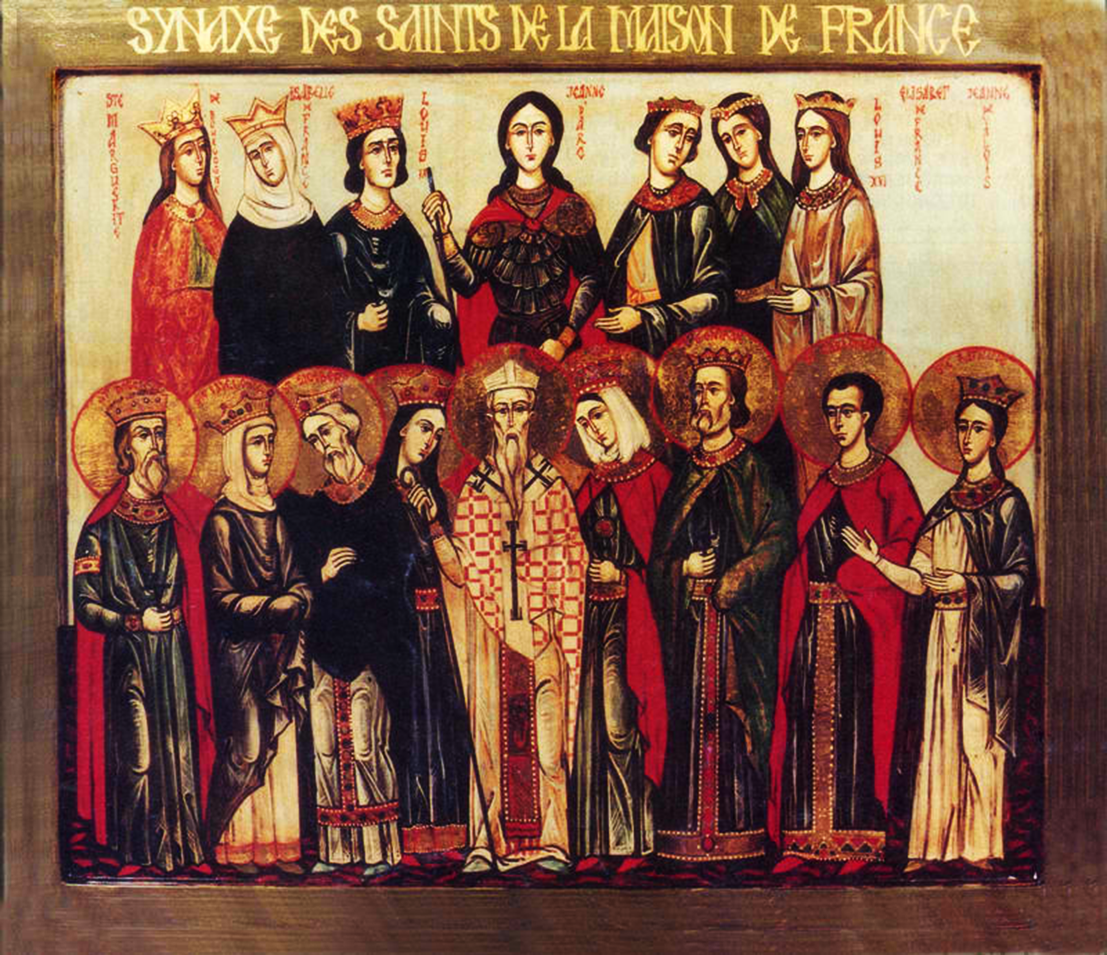Orthodox Saints of the Pre-Schism See of Rome

8th September
ÆTHELBURH (ETHELBURGH, ETHELBURGA) of KENT, St. Æthelburh was the daughter of King St. Ethelbert of Kent (25th February) and his Frankish wife Queen St. Bertha (1st May). Upon her betrothal to King St. Eadwine of Northumbria (12th October) St. Æthelburh travelled to her new home accompanied by St. Paulinus of York (10th October). There she and St. Paulinus converted her husband and were instrumental, in the conversion of Northumbria, and successfully brought the kingdoms of Kent and Northumbria closer together. Upon the repose of King St. Eadwine, St. Æthelburh and St. Paulinus returned to Kent. There St. Æthelburh founded a monastery at Lyminge where she served as abbess until her repose circa 647.
CORBINIAN, a native of Châtres (north-central France), who after living for fourteen years as a hermit, became widely acclaimed as a wonderworker and spiritual director. This resulted in many disciples gathering around him and the inevitable abbey being formed all of which took St. Corbinian from his solitude and life of prayer. He then went to Rome where he sought the blessing of Pope St. Gregory II (11th February) to continue life as a hermit. Pope St. Gregory recognising St. Corbinian's talents ordained him a missionary bishop to Bavaria (southern Germany). St. Corbinian based his See at Freising, and despite some difficulty with the local nobility, is said to have had a long and successful episcopacy. St. Corbinian reposed in 730.
DISIBOD (DISIBODE, DISEN) of DISENBERG, according to tradition, St. Disibode was an Irishman who, with several companions, worked as a missionary along the present-day border of France and Germany. After ten years he went to Odernheim in present-day Rhineland-Palatinate, Germany where he founded a monastery later known as Disibodenberg (Mount St. Disibod). St. Disibod reposed in 700.
Troparion of St. Kingsmark
Tone VII
Seeing that many were brought to Christ
by the radiant example of thy virtuous life
And thy missionary labours,
O holy Kingsmark, Pray that we too may follow thee
In the service of our Saviour, that our souls may be saved.
KINGSMARK (KINEMARK, CYNFARCH), (Fifth Century), a Scottish chieftain, our venerable and God-bearing Father Kingsmark is widely believed to have been married to a granddaughter of King St. Brychan of Brycheiniog (6th April). In later life, he lived in Wales as a monk and disciple of St. Dubricius of Caerleon (14th November). As a monk, St. Kingsmark grew to be renowned for his holiness of life, and soon after his repose was glorified by the Welsh faithful. The area of St. Kingsmark in Monmouthshire, Wales takes its name from him, and there are several churches dedicated to St. Kingsmark in the English West Country and Wales.
SERGIUS I, born in Palermo Sicily to a family originally from Antioch, he was Pope of Rome from 687 until his repose in 701. St. Sergius enjoyed close relations with the Church in England; baptising St. Cadwalla of Wessex (20th April), resolving the dispute over St. Wilfrid of York's (12th October) position as the Ordinary of the See of York, and encouraging St. Willibrord of Echternach's (7th November) evangelisation of the Frisians. St. Sergius is also credited with introducing the Agnus Dei to the Canon of the Latin Mass.
Prior to the Schism the Patriarchate of Rome was Orthodox, and fully in communion with the Orthodox Church. As Saint John of Shanghai and San Francisco +1966 said “The West was Orthodox for a thousand years, and her venerable Liturgy is far older than any of her heresies”.
Details of British Saints excerpted from Orthodox Saints of the British Isles.
Details of continental saints from these sources.
In many cases there are several spelling versions of the names of saints from the British Isles. I use the Oxford Dictionary of National Biography version as the primary version with the more prevalent version in parenthesis e.g. Ceadda (Chad) of Lichfield.
